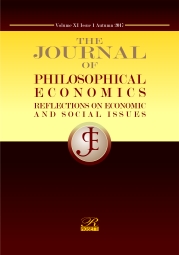A theory of planning horizons (1): market design in a post-neoclassical world
A theory of planning horizons (1): market design in a post-neoclassical world
Author(s): Frederic B. Jennings Jr.Subject(s): Philosophy, Social Sciences, Economy, Special Branches of Philosophy, Sociology, Philosophy of Science, Social Theory, Socio-Economic Research
Published by: Editura Rosetti International
Keywords: growth; complementarity; planning horizons;
Summary/Abstract: The neoclassical case supporting competitive frames and market solutions has failed to promote stable world-wide economic development. Other approaches in economics incorporate social culture, increasing returns, market power, ecological limits and complementarity, yielding broader applications for development theory. In this paper a theory of planning horizons is introduced to raise some meaningful questions about the traditional view with respect to its substitution, decreasing returns and independence assumptions. Suppositions of complementarity, increasing returns and interdependence suggest that competition is inefficient by upholding a myopic culture resistant to learning. Growth – though long believed to rise from markets and competitive values – may not derive from these sources. Instead, as civilizations advance, shifting from material wants to higher-order intangible output, they evolve from market tradeoffs (substitution and scarcity) into realms of common need (complementarity and abundance). The policy implications of horizonal theory are explored, with respect to regulatory aims and economic concerns. Such an approach emphasizes strict constraints against entry barriers, ecological harm, market power abuse and ethical lapses. Social cohesion – not competition – is sought as a means to extend horizons and thereby increase efficiency, equity and ecological health. The overriding importance of horizon effects for regulatory assessment dominates other orthodox standards in economics and law. Reframing economics along horizonal lines suggests some meaningful insight on the proper design of economic systems.
Journal: Journal of Philosophical Economics
- Issue Year: V/2012
- Issue No: 2
- Page Range: 5-37
- Page Count: 33
- Language: English

